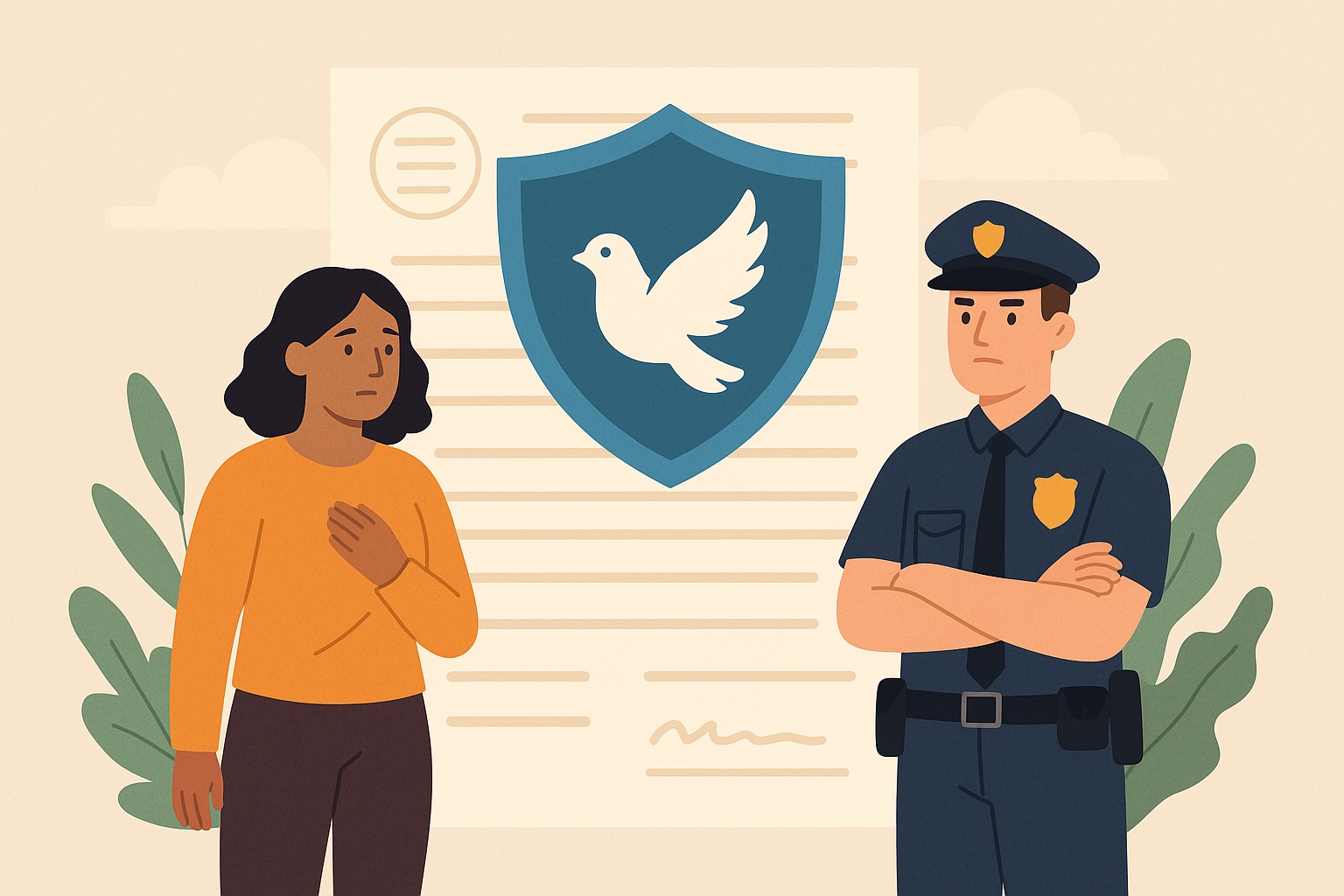Understanding Peace Bonds (Section 810) in Ontario: How They Can Protect You
A Peace Bond under Section 810 of the Criminal Code allows you to legally protect yourself from someone you fear—even if they haven’t been charged. This guide explains how peace bonds work in Ontario and how to apply.

If you're feeling threatened, harassed, or unsafe—but the person hasn’t been charged with a crime—you can still get legal protection through a Peace Bond.
In Ontario, Peace Bonds are available under Section 810 of the Criminal Code and are enforced by criminal court.
❓ What is a Peace Bond?
-
A court order that requires someone to stay away from you and follow strict rules
-
Granted if a judge believes you have a reasonable fear of harm, even if no crime occurred
-
Typically lasts up to 12 months
-
Issued through criminal court, not family court
-
Free to request and doesn’t require a lawyer
⚖️ Who Can Get One?
You can apply if:
-
You are afraid that someone may hurt you, your children, or your property
-
You fear threats, stalking, harassment, or physical violence
-
The person is a partner, ex, friend, coworker, neighbor, or anyone—even if unrelated
-
There is no restraining order or family court involvement
📝 How to Apply for a Peace Bond in Ontario
-
✅ Visit your local police station or courthouse
-
✅ Ask to speak with a Justice of the Peace (JP)
-
✅ File an Information under Section 810, explaining why you're afraid
-
✅ You may be asked to testify at a hearing
-
✅ The person can agree voluntarily, or a full hearing may take place
🔒 What Conditions Can It Include?
-
No contact (calls, texts, emails, social media)
-
No going near your home, work, school, or family
-
No weapons
-
Any other restrictions needed to protect you
🚨 What If They Break It?
-
Breaching a peace bond is a criminal offence
-
Call 911 or your local police immediately
-
Police can arrest them even if no new violence occurred
-
Keep all evidence: messages, witness accounts, call logs
🔁 Can I Renew or Extend It?
-
If you still fear for your safety, you can ask the court to issue a new peace bond
-
Apply again before the current one expires
-
Courts will evaluate your continued risk and past violations
🧾 Peace Bond vs. Restraining Order (Key Differences)
-
Peace Bond:
-
Criminal court
-
No relationship requirement
-
Free, available through a Justice of the Peace
-
-
Restraining Order:
-
Family court
-
Must be ex-partner or co-parent
-
Requires filing Form 9C
-
📌 Summary: What You Need to Know
-
✅ Peace Bonds protect you without criminal charges
-
✅ Granted through Section 810 of the Criminal Code
-
✅ Easy to apply through a JP at your local court or police station
-
✅ Can include no-contact and area restrictions
-
✅ Breaching it is a criminal offence
📍 Ontario Resources
-
Victim Support Line (Ontario): 1-888-579-2888
-
Legal Aid Ontario: 1-800-668-8258
-
Assaulted Women’s Helpline: 1-866-863-0511
-
Barbra Schlifer Commemorative Clinic: Free legal and counselling support
-
Luke’s Place: Family law help for women fleeing abuse
Frequently Asked Questions (FAQs)
1. What do I need to prove to get a peace bond?
You do not need to prove that a crime has already been committed. You only need to show the court that you have a "reasonable fear" that the other person will harm you, your family, or your property. Your fear must be based on specific actions or threats.
2. Who can I get a peace bond against?
You can seek a peace bond against anyone who is causing you to fear for your safety. Unlike a family law restraining order, it does not have to be an ex-partner. It can be a neighbour, a co-worker, an acquaintance, or even a stranger.
3. How much does it cost to get a peace bond?
There are no court fees to apply for a Section 810 Peace Bond, as it is a criminal court matter.
4. Is a peace bond the same as a restraining order?
No. A peace bond is an order from a criminal court to prevent future harm. A restraining order is an order from a family court, typically used between ex-partners to set rules about contact. Breaching a peace bond is a direct criminal offence.
5. Does the other person get a criminal record if I get a peace bond against them?
No. Agreeing to a peace bond does not result in a criminal record, as it is not an admission of guilt. However, if they breach the peace bond, they will be charged with a new criminal offence, which would result in a criminal record if they are convicted.
6. My peace bond is about to expire, but I'm still afraid. What can I do?
A peace bond cannot be "renewed" or "extended." If you still have a reasonable fear for your safety as the expiry date approaches, you must start the process over again by applying for a new peace bond.
